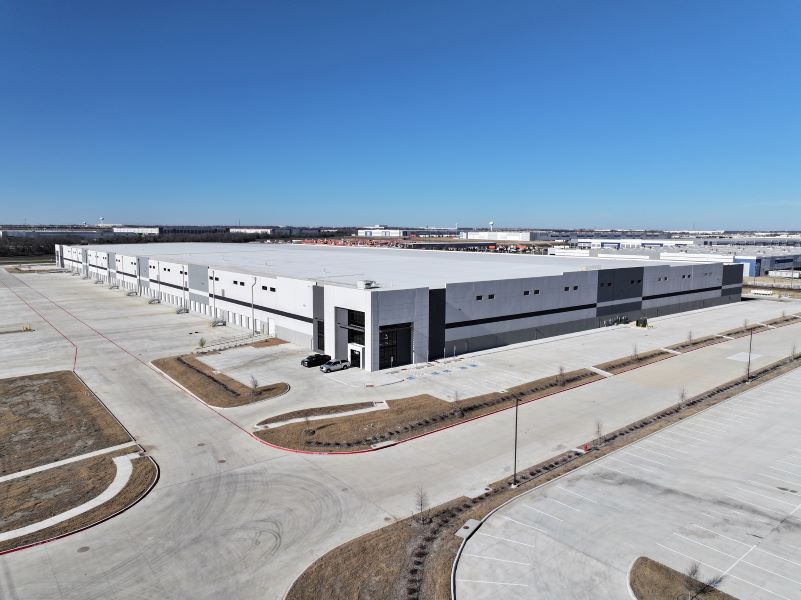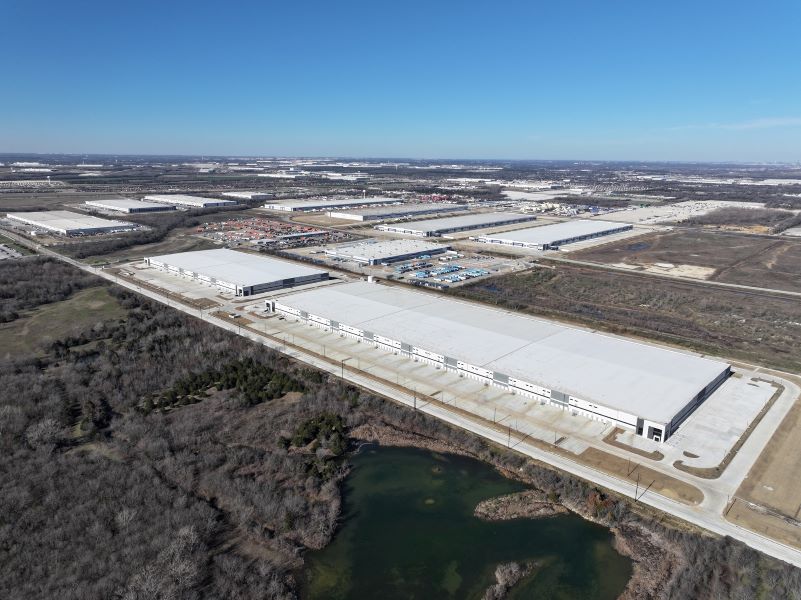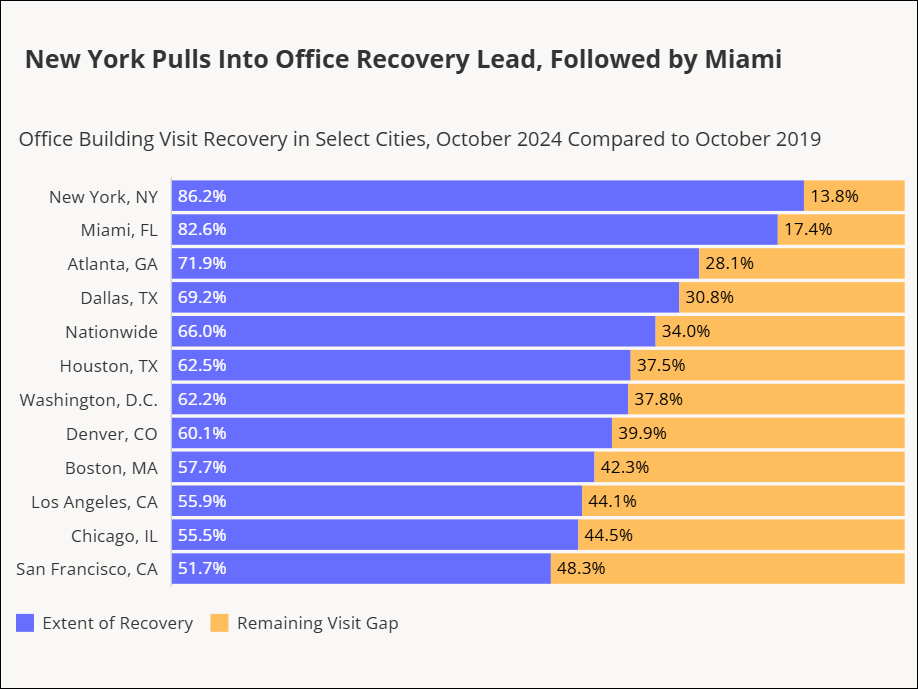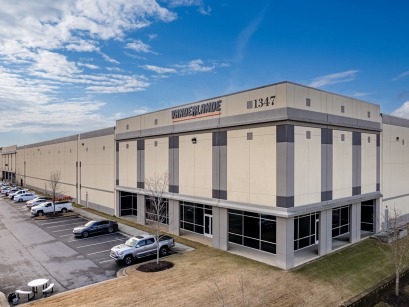Grandview Partners, TRG Land $100M for Dallas Industrial Park
Delivered this summer, the buildings total more than 1.6 million square feet.
Grandview Partners and TRG Development procured $99.8 million to finance a newly constructed industrial park totaling more than 1.6 million square feet in Wilmer, Texas, a Dallas suburb.

Known as Core45, the project was delivered this summer, adding to the growth of the high-demand market. Benefit Street Partners provided the refinancing, which took out the property’s construction loan at more favorable terms.
The Class A property comprises two industrial, manufacturing and distribution buildings and is located along the heavily traversed I-45 corridor within the coveted South Dallas submarket.
Located at 1401 and 1501 E. Pleasant Run Road, the facilities measure 616,449 and more than 1 million square feet, respectively. The buildings feature optimal truck courts, extensive auto and trailer parking (900 auto stalls), 40-foot clear heights, approximately 4,000 square feet of speculative office space, ESFR sprinklers and cross-dock loading. They are designed to accommodate a variety of users, from multi-tenant arrangements to full-building occupants.
The property is 18 percent preleased to Owens Corning, an Ohio-based roofing, insulation and composite materials provider.
READ ALSO: E-Commerce Growth Revives Industrial Market
Rob Rubano, Brian Share, Michael Zelin, Max Schafer, Billy Coyle and Nikola Kretschmann led the Cushman & Wakefield Equity, Debt, and Structured Finance team. Additionally, the firm’s Industrial Advisory Group, led by Jim Carpenter, Jud Clements, Robby Rieke and Trevor Berry, provided local market advisory.
Population growth, job market boosts Dallas
Doug Ressler, business intelligence manager for CommercialEdge at Yardi, told Commercial Property Executive that Dallas-Fort Worth benefits from a robust economy, a growing job market and significant population growth.
“There is a strong demand for industrial space driven by e-commerce, global trade and the need for backup inventory,” he said.
The market has seen 55 consecutive quarters of positive net absorption, indicating consistent demand. Construction is ongoing at a high level, with millions of square feet in the pipeline. However, Ressler said vacancy rates are challenging despite high demand, which can impact rental rates and property values.
“There has been a slowdown in the development of large industrial spaces, which could limit options for larger tenants,” Ressler added. “Investors are becoming more cautious, which could affect financing and investment in new projects.”
According to Greg Langston, principal & managing director for Avison Young’s Dallas office, DFW’s industrial market has been one of the strongest ever because of its position as a national logistics hub.
“Our region’s central U.S. location and multimodal accessibility for road, rail and air are key to this reputation, as is our affordability compared to other distribution markets where average rents can easily exceed $12 to $16 per square foot,” Langston said.
As market vacancy is now elevated, Langston expects a slowdown in development activity through 2025.
DFW’s positive absorption trend continues
Josh Wheeler, senior vice president of development & acquisitions at Stonemont Financial Group, told CPE the DFW metroplex remains a leading hub for industrial growth, even as the market stabilizes following pandemic-driven expansion.
“Despite slowed construction and rising vacancy rates, DFW’s positive absorption trend continues, supported largely by population growth and increased manufacturing in northern Mexico and Texas,” Wheeler said. “As the market cools, we’re seeing a return to pre-COVID norms, positioning DFW to maintain its role as an industrial powerhouse.”
According to Justin Laswell, partner, CPA, for Moss Adams in Dallas, there is a robust demand in the Dallas industrial sector, driven by the region’s strong logistics network and consistent population growth.
“This market resilience is supported by high occupancy rates and steady rental increases as businesses prioritize proximity to major transportation hubs and consumers,” Laswell said.
He explained that despite economic uncertainties, Dallas’s industrial sector remains a top performer nationally, with developers racing to keep up with tenant demand across warehousing, manufacturing, and distribution spaces.
Foundry makes office-to-industrial conversions
For Foundry, DFW has been the breeding ground for projects, such as Horizon Landing, its first office-to-industrial conversion.
Jim Traynor, managing director of development & investments for Foundry Commercial in Dallas, said when Foundry looked at the DFW market from a big-picture perspective, “it was clear that demand for hyper-infill industrial projects remained incredibly strong.”
He observed however that the challenge is that very little—if any—industrial land is available in these prime pockets. At the same time, the rapid rise in interest rates hit suburban office buildings particularly hard, with liquidity drying up and property values taking a significant hit.
“This presented a unique opportunity, so we began conversations with office property owners about converting their spaces into industrial developments to meet market demand,” he said.
According to Traynor, not every city is equally suited for office-to-industrial conversions, as industrial developments have their own challenges and complexities. Within the Dallas – Fort Worth metroplex however, municipalities seem to be generally open to these types of deals and willing to collaborate.
Many cities with vacant office buildings embrace industrial conversions to attract jobs and boost tax revenues, Traynor explained. “While industrial use may not have been their first choice, they see office demand isn’t returning and are supportive. So far, we’ve only targeted areas where industrial development is already welcomed,” he added.
Certain Dallas submarkets have an oversupply of office space, making it crucial and exciting to repurpose these properties, according to Traynor. And since both the city and its residents have a real need for this space, he anticipates more projects like this. “It’s just a matter of identifying vacant office stock in the right areas where these conversions can succeed,” Traynor said.
Foundry Commercial announced last week that it is developing its seventh office-to-industrial conversion project and its second in the Dallas market.
The company will replace a 250,000-square-foot, 1980s-era office building in Plano, Texas, with two industrial assets totaling more than 300,000 square feet. Demolition work will begin this month, and the developer expects to complete both new buildings by the first quarter of 2026.








You must be logged in to post a comment.